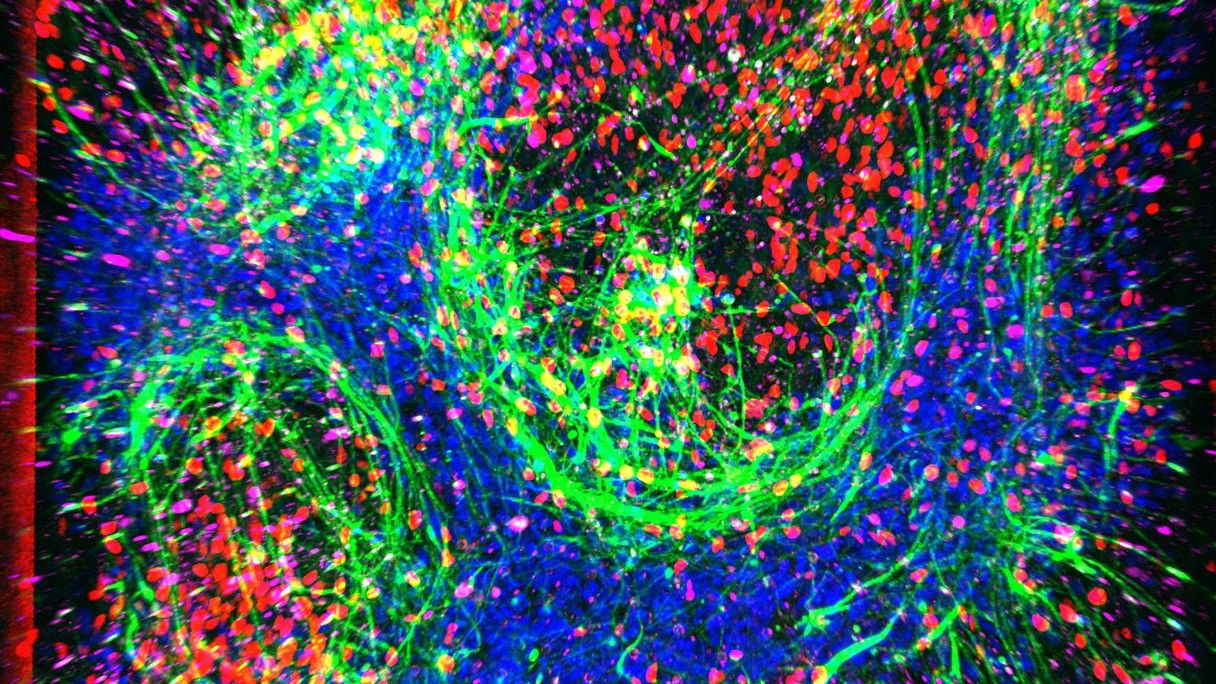Now Reading: New Pocket-Size ALS Model Mimics Human Tissue Function
-
01
New Pocket-Size ALS Model Mimics Human Tissue Function
New Pocket-Size ALS Model Mimics Human Tissue Function

Rapid Summary
- Scientists have developed a “spinal-cord-on-a-chip” model to study amyotrophic lateral sclerosis (ALS), specifically the sporadic form which accounts for 95% of cases.
- Made with stem cells derived from blood samples of ALS patients adn healthy donors, the chip mimics early stages of the disease more effectively than prior lab models.
- The chip comprises two chambers – spinal motor neurons in one and blood-brain barrier (BBB) cells in another – separated by a porous membrane and perfused with fluid to simulate blood flow.
- Researchers observed increased glutamate activity (excitatory neural signaling) coupled with decreased GABA receptor activity in ALS neurons, which may be linked to disease progression.
- Drug development implications include better screening methods, potential insight into treatment pathways, and early detection mechanisms.
- Limitations highlighted: absence of glial cells, lack of late-stage degeneration modeling, yet promising results for studying early stages and drug testing.
Indian Opinion Analysis
The development represents an crucial step forward in addressing ALS research challenges. By providing an accurate human-like surroundings for cellular interactions relevant to this neurodegenerative condition, this innovation could accelerate breakthroughs for treatment.India should monitor such developments closely as neurodegenerative diseases are increasing globally due to aging populations. Collaboration between biotech firms like Emulate and Indian institutes could bolster domestic capabilities for cutting-edge medical technology creation or refinement. However, limitations noted by experts indicate that while promising at its current stage, broader cell modeling approaches need incorporation before clinical outcomes can be fully predicted.

























